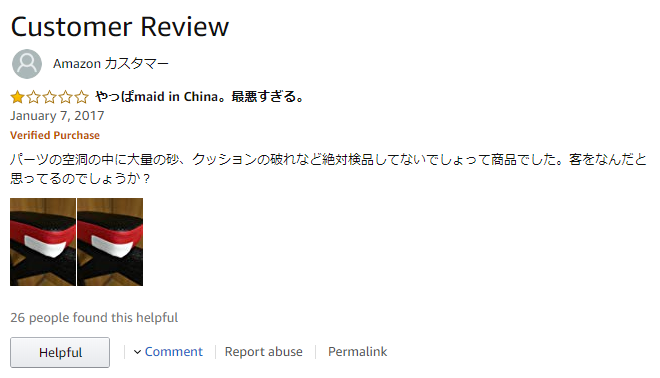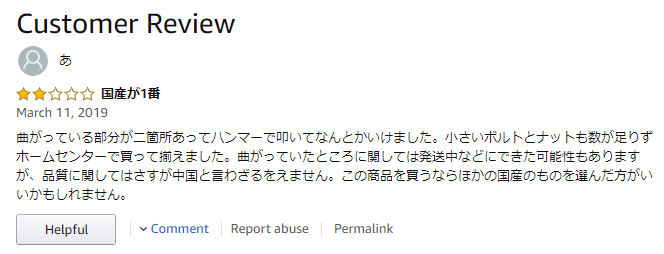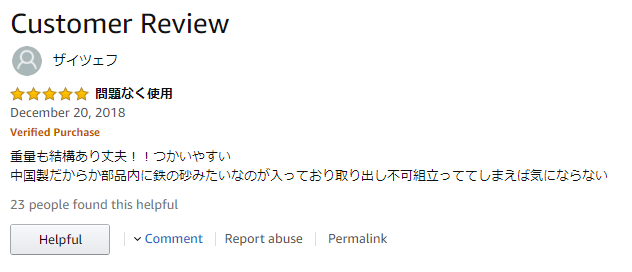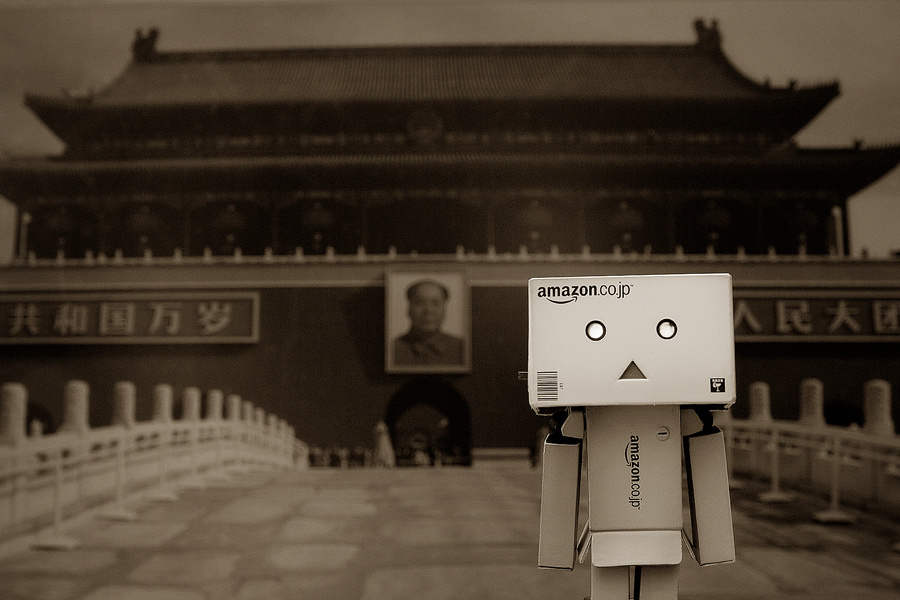“Made in China” is an often seen complaint in reviews on Amazon Japan.
Although parallels could be drawn with Western customers, I would say that the Japanese comments come from a deeper, darker place. The insinuation of poor Chinese quality comes across with a more nationalistic undertone. Essentially, idealizing Japanese production. This difference in perception between a Japanese and a Western customer, cannot be understated.
As a follow up to the silly review post I made yesterday, this post looks at this more serious matter, and I hope helps to enlighten you more on the psyche of the Japanese consumer.
If you ever see several 1 star reviews for a product on Amazon Japan, you are almost guaranteed to find one that is blaming Chinese production for the quality.
All the examples below are simply what I stumbled across today whilst shopping on Amazon Japan, and are all very common examples of what you’ll find in almost any category.

Title above:
“made in China” of course. Absolutely terrible.
These comments irk me for reasons that will be obvious to most of you. Firstly, what isn’t made in China these days?! Secondly, if you choose to purchase the cheapest option you find on Amazon, what do you expect!
But what annoys me the most, are the reviewers that conclude with “Japanese is best”. Although that may well be true, there is a good reason why you went for the cheap Chinese crap and not the Japanese made version! Price.

The Title above reads:
Domestic production is No.1
And the review sumarizes with:
If you buy this (type of) product, you should possibly choose a domestically (Japanese) produced one.
No Shit Sherlock! So why didn’t you choose the Japanese produced one then? I’ll tell you why, because there isn’t a single one for sale on Amazon. And why is that? Because this particular type of product (steel made gym equipment) cannot be competitively produced in Japan. Every single one of the products for sale are “Made in China”. Good luck choosing a different option…

Some Japanese customers do get it though. The review above is an interesting example as it is a 5 star review. This reviewer had obviously resigned himself to expecting low quality, and understands he is got what he paid for:
Because it’s made in China, the parts have sand like steel shavings inside that can’t be removed, but if you put it together it doesn’t really matter”
So what does this all mean for us sellers?
Whereas the trade-off between quality and price is obvious to most Western customers, the prevalence of these China bashing comments highlights an misunderstanding in Japan.
Everyone knows that Japanese value quality, however, many consumers are no longer willing to pay for it. And haven’t since the heady days of the Japanese bubble that burst in the early 90s. Japan has essentially been in a prolonged recession for over 20 years (or at least, stagnant growth and price deflation). This has had a profound impact on the consumers concept of value.
Japanese want cheap products at high quality. Rather than “want”, I should say “expect”. This is obviously not possible from a production standpoint. That is where techniques such as branding, pricing and packaging come into play. The imbalance between expected price and quality, is a question of perception.
Raising your products perceived value is the key to success in Japan. Get that right, and the issue of “Made in China” should never arise in a review. Even if the customer knows it was.







